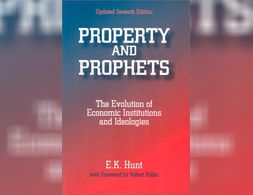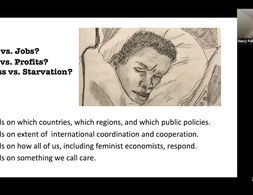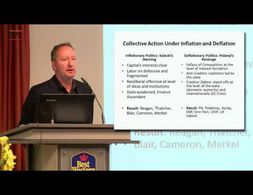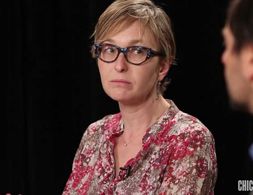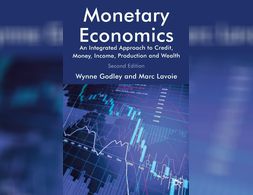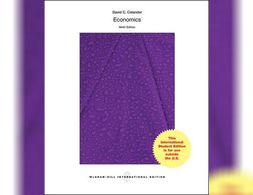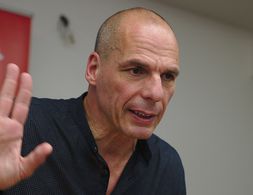✕
328 results
How can we establish new institutions and practices in order to use fare-free public transport as a beacon for sustainable mobility and a low-carbon lifestyle? The author of this essay elaborates on how practice theory and institutional economics can help to answer this question.
A central question in development economics literature is, “Why do countries stay poor?” The key disagreements are whether the lack of economic growth stems from institutions or from geography (Nunn 2009). From an institutional perspective, hostile tariff regimes and commodity price dependencies form a barrier to a sectoral shift that would otherwise lead to economic development in developing countries (Blink and Dorton 2011) (Stiglitz 2006).[i]
In 18th century Europe figures such as Adam Smith, David Ricardo, Friedrich List and Jean Baptiste Colbert developed theories regarding international trade, which either embraced free trade seeing it as a positive sum game or recommended more cautious and strategic approaches to trade seeing it as a potential danger and a rivalry and often as a zero-sum game. What about today?
Whether a black swan or a scapegoat, Covid-19 is an extraordinary event. Declared by the WHO as a pandemic, Covid-19 has given birth to the concept of the economic “sudden stop.” We need extraordinary measures to contain it.
Post-Keynesians focus on the analysis of capitalist economies, perceived as highly productive, but unstable and conflictive systems. Economic activity is determined by effective demand, which is typically insufficient to generate full employment and full utilisation of capacity.
This is an introductory level core course in macroeconomics for those expecting to take further courses in economics. It provides a theoretical and applied approach of introductory macroeconomics, with an international perspective and applications to account for the growing importance of the global economy and the rising openness of economies.
Why are some nations more prosperous than others? Why Nations Fail sets out to answer this question, with a compelling and elegantly argued new theory: that it is not down to climate, geography or culture, but because of institutions.
Mainstream economics was founded on many strong assumptions. Institutions and politics were treated as irrelevant, government as exogenous, social norms as epiphenomena. As an initial gambit this was fine. But as the horizons of economic inquiry have broadened, these assumptions have becomehindrances rather than aids.
How did the rich countries really become rich? In this provocative study, Ha-Joon Chang examines the great pressure on developing countries from the developed world to adopt certain 'good policies' and 'good institutions', seen today as necessary for economic development.
Hunt (economics, U. of Utah) provides a concise history of the rise and triumph of capitalism, centering mainly on England until 1800 and the U.S. since 1800. He traces the evolution of some of the most significant institutions of capitalism, analyzes the recurring ideological defenses and the radical critiques of capitalism, and examines intellectual developments which were occurring at the same time.
The Privatized State shows how privatization undermines the very reason political institutions exist in the first place, and advocates for a new way of administering public affairs that is more democratic and just.
On July 2020 ZOE-Institute published a unique platform for transformative policymaking: Sustainable Prosperity. Building on insights from new economic thinking the platform provides knowledge about ideas, arguments and procedures that support effective promotion of political change. It aims to strengthen change makers in public policy institutions, who are working on an ambitious green and just transition. As such, it provides convincing arguments and policy ideas to overcome the reliance of economic policy on GDP growth
This Encyclopedia is a very first fully refereed A-Z compendium of the main principles, concepts, problems, institutions, schools and policies associated with political economy. Part 1 of a 2-volume set comprises entries from A-K.
Focusing on Kenya’s path-breaking mobile money project M-Pesa, this book examines and critiques the narratives and institutions of digital financial inclusion as a development strategy for gender equality, arguing for a politics of redistribution to guide future digital financial inclusion projects.
The world has changed dramatically in recent years and so has the field of economics, but many introductory economics textbooks have remained stuck in the past. This book provides a new beginning for the study of macroeconomics, fundamentally international in its approach and emphasizing current debates and research trends.
Prof. Robert Guttmann looks at the current transformation of the international world order through the lenses of global money and finance.
This is an online panel and discussion on the ongoing and potential gendered impacts of COVID-19 organized by the International Association of Feminist Economics (IAFFE).
In both economics textbooks and public perceptions central banks are a fact of life. On the wall of my A-level economics classroom there was the Will Rogers quote “there have been three great inventions since the beginning of time: fire, the wheel, and central banking”, summarising how many economists view the institution. There is a widespread belief that there is something different about money which calls for a central authority to manage its operation, a view shared even by staunch free marketeers such as Milton Friedman. This belief is not without justification, since money underpins every transaction in a way that apples do not, but we should always be careful not to take existing institutions for granted and central banking is no exception. In this post I will look at the idea of private or free banking, where banks compete (and cooperate) to issue their own currency.
Mark Blyth criticises the political inability to solve the persistent economic crisis in Europe against the background of a deflationary environment. Ideological blockades and impotent institutions are the mutually reinforcing causes of European stagnation. The deeper roots lie in the structural change of the economic system since the 1980s, when neoliberalism emerged as hegemonic ideology. This ideology prepared the ground for austerity and resulting deflationary pressures and a strategy of all seeking to export their way out of trouble. Worryingly this is breeding populist and nationalist resentments in Europe.
How did economic growth become paramount as the public policy objective? Peter Victor discusses the role of growth within institutions, asks if it is possible to imagine a degrowth economy and discusses the role of grass-root movements.
Teaching the public about lobbying and its effects on financial institutions that help run the economy in which we all live and use.
The authors discuss how identity affects economic outcomes by bringing together psychological and sociological perspectives and economics. For economic outcomes of a single individual, it might be interesting which kind of social groups this individual belongs to. This may influence individual daily decisions and hence economic outcomes. It can, however, not only affect individual economic outcomes but also economic outcomes of organizations, institutions and other groups. This paper describes these influences with respect to gender in the workplace, to the economics of poverty and social exclusion, and to the household division of labour.
This paper surveys the development of the concept of socialism from the French Revolution to the socialist calculation debate. Karl Marx’s politics of revolutionary socialism led by an empowered proletariat nurtured by capital accumulation envisions socialism as a “top-down” system resting on political institutions, despite Marx’s keen appreciation of the long-period analysis of the organization of social production in the classical political economists. Collectivist thinking in the work of Enrico Barone and Wilfredo Pareto paved the way for the discussion of socialism purely in terms of the allocation of resources. The Soviet experiment abandoned the mixed economy model of the New Economic Policy for a political-bureaucratic administration of production only loosely connected to theoretical concepts of socialism. The socialist calculation debate reductively recast the problem of socialism as a problem of allocation of resources, leading to general equilibrium theory. Friedrich Hayek responded to the socialist calculation debate by shifting the ground of discussion from class relations to information revelation
Economic theory must distinguish between publicly owned and privately owned property if it is to account for the effect of institutions on the behavior of individuals. Careful study of the theories of Marxists and the real-world experience in the Soviet economy offer important lessons and insight for economic modeling and the ongoing development of theory. In this course, Marxist/Leninist theory and Soviet reality will be studied with an open mind, and with the goal of taking lessons from the case study. To what extent was the Soviet economy an accurate expression of Marxist theory? If Marxism were tried somewhere else would the results be the same?
This book challenges the mainstream paradigm, based on the inter-temporal optimisation of welfare by individual agents. It introduces a methodology for studying how institutions create flows of income, expenditure and production together with stocks of assets and liabilities, thereby determining how whole economies evolve through time.
Helps students succeed in the principles of economics course. This title offers trademark colloquial approach that focuses on modern economics, institutions, history, and modeling, and is organized around learning objectives to make it easier for students to understand the material and for instructors to build assignments within Connect Plus.
Macroeconomics in Context: A European Perspective lays out the principles of macroeconomics in a manner that is thorough, up to date, and relevant to students. With a clear presentation of economic theory throughout, this latest addition to the bestselling "In Context" set of textbooks is written with a specific focus on European data, institutions, and historical events, offering engaging treatment of high-interest topics, including sustainability, Brexit, the euro crisis, and rising inequality. Policy issues are presented in context (historical, institutional, social, political, and ethical), and always with reference to human well-being.
In this searing and insightful critique, Adrienne Buller examines the fatal biases that have shaped the response of our governing institutions to climate and environmental breakdown, and asks: are the 'solutions' being proposed really solutions? Tracing the intricate connections between financial power, economic injustice and ecological crisis, she exposes the myopic economism and market-centric thinking presently undermining a future where all life can flourish.
So, what does racism have to do with our 21st century economic system? How can we understand institutions who uphold racism while claiming to value diversity and inclusion? And what does it mean to truly be anti-racist?
This panel is about discussing the international development discipline from a critical perspective, exploring how the current practice entangles with Eurocentric/neo-colonial thoughts and how can we move beyond them.
The Philosophy of Economics Foundational Text provides a systematic and well-structured overview over the field of philosophy of economics.
Yanis Varoufakis, former finance minister of Greece and the co-founder of the international DiEM25 platform, discusses the economic and political impacts of the Covid-19 Pandemic, in particular with regards to the Eurozone and southern European countries.
We use cookies on our website. Click on Accept to help us to make Exploring Economics constantly better!










